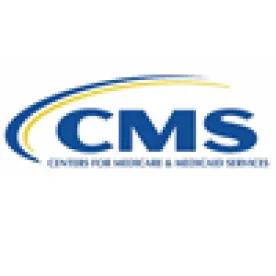This post is the first in a series from Epstein Becker Green on the growing area of enforcement of the Medicare Secondary Payer Act (MSP). There has been a recent growth in enforcement actions and regulatory interest that may not have yet attracted the attention of many providers and traditional and non-traditional payers. Noncompliance with the MSP can result in monetary penalties and government enforcement action. In particular, the MSP is garnering attention as an enforcement tool under the False Claims Act (FCA). This series of blogs provides a general overview of the MSP, discusses requirements for compliance for differing entities, describes recent MSP enforcement actions under the False Claims Act (FCA), and sets forth key takeaways to potentially reduce liability.
The Medicare Secondary Payer Act: The Basics
In order to understand why the MSP is relevant and may create new risks for payers and providers, we’ll start with an overview of the law and why Congress wanted to remedy a problem with the Medicare program. Before the MSP was enacted, Medicare made payments on behalf of its beneficiaries for any medical services, except those covered by workers’ compensation. In many cases, claims were paid by the Medicare program even though beneficiaries had other sources of coverage for their care. This resulted in a rapid depletion of the Medicare Trust Fund, and in 1980 Congress passed the MSP statute to cut health care costs and reduce Medicare disbursements. The MSP currently affects providers, employer sponsored group health plans (GHPs), liability and no-fault insurers, workers’ compensation funds and plans (collectively, Non-Group Health Plans, or NGHPs), and Medicare beneficiaries. Generally, the MSP:
(1) requires that Medicare be a secondary payer if a beneficiary carries certain types of employer sponsored health plans[1];
(2) prohibits the Centers for Medicare and Medicaid Services (CMS) from making payments for Medicare-covered services if payment has been made, or can reasonably be expected to be made, by a another payer[2]; and
(3) permits CMS to make “conditional payments” to the beneficiary if there is a delay in reimbursement from another entity for a covered service.[3]
Congress also enacted a parallel MSP provision that applies to state Medicaid plans.[4]
Special rules apply to Medicare beneficiaries covered under a GHP,[5] and Medicare is generally the secondary payer for these covered services when:
-
A beneficiary is entitled to Medicare on the basis of age, but is covered under a GHP by virtue of his or her current employment or the current employment status of a spouse of any age; or
-
A beneficiary is entitled to Medicare on the basis of End Stage Renal Disease (ESRD) for the first 18 months of eligibility; or
-
A beneficiary is entitled to Medicare on the basis of disability, but is covered under a GHP by virtue of his or her current employment status or the current employment status of a family member.[6]
In order to help primary payers and providers in meeting their MSP obligations, CMS established a Coordination of Benefits (COB) system that collects beneficiary coverage data. The Benefits Coordination & Recovery Center (BCRC) administers the COB by ensuring the accuracy of the Common Working File (CWF), a CMS database that stores information regarding MSP data and investigations. CMS shares this data with other payers to ensure proper claim submission to Medicare. The COB collects data from a variety of sources, including:
-
IRS/SSA/CMS Claims Data Match – By law, the IRS, Social Security Administration (SSA) and CMS must share information regarding beneficiaries. Employers must complete the IRS/SSA/CMS Claims Data Match questionnaire for each GHP that Medicare eligible beneficiaries and their spouses choose.
-
Voluntary Data Sharing Agreements (VDSAs) – These agreements allow employers and CMS to exchange GHP enrollment information.
-
COB Agreement (COBA) Program – This program established a national standard contract between the BCRC and other health insurance organizations for the purpose of transmitting beneficiary eligibility data and Medicare paid claims data.
-
Section 111 Required Reporting Requirements – Under this law, GHPs, workers’ compensation, self-insurance, and no-fault insurance (collectively, non-group health plans, or NGHPs) must register as a Responsible Reporting Entity (RRE) and report certain information pertaining to each enrollee’s Medicare eligibility, as discussed in more detail below.
-
Other Data Exchanges – CMS has created data exchanges with other entities, such as Pharmaceutical Benefit Managers, State Pharmaceutical Assistance Programs, and other prescription drug payers for the purpose of educating these entities regarding COB processes and the MSP framework.
Through these databases, the COB coordinates efforts between CMS, primary payers, and providers to ensure that Medicare is billed properly.
This wide variety of reporting sources may be daunting for many providers and payers who are required to report. However, these fears can be overcome by incorporating these tasks into the organization’s existing compliance program if the requirements for reporting are known. In the next blog post, we will be addressing compliance with conditional payment requirements provided by Medicare.
This is part 1 of 7 in the Medicare Secondary Payer Compliance series.
[1] 42 USC § 1395y(b)(2)(A)(i); 42 CFR § 411.20.
[2] 42 USC § 1395y(b)(2)(A)(ii); 42 CFR § 411.20.
[3] 42 USC § 1395y(b)(2)(B); 42 CFR §§ 411.21 & 411.24.
[4] 42 USC § 1396a(a)(25); 42 CFR §§ 433.135-140.
[5] 42 USC § 1395y(b)(1); 26 USC § 5000(b)(1).
[6] 42 CFR § 411.20





 />i
/>i

